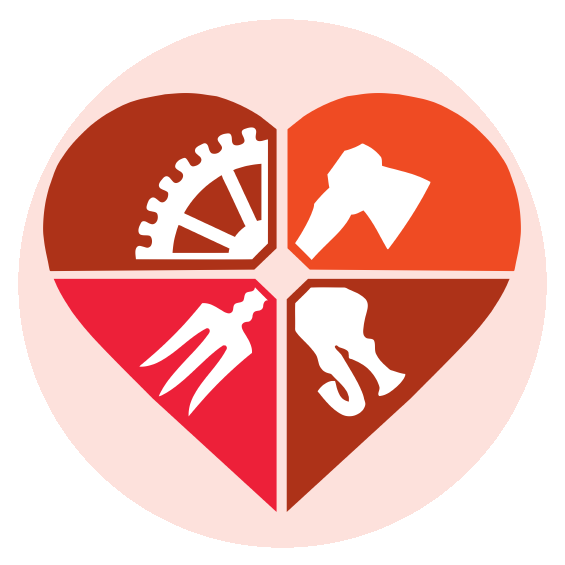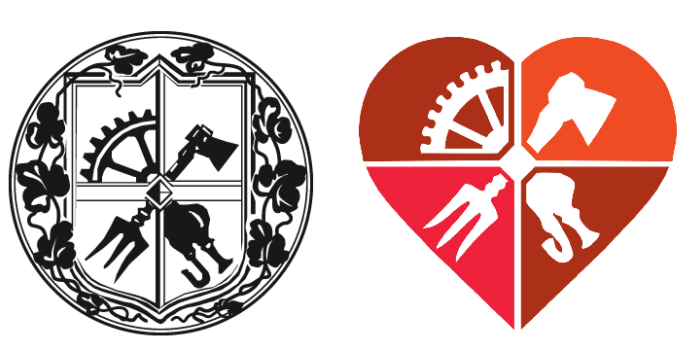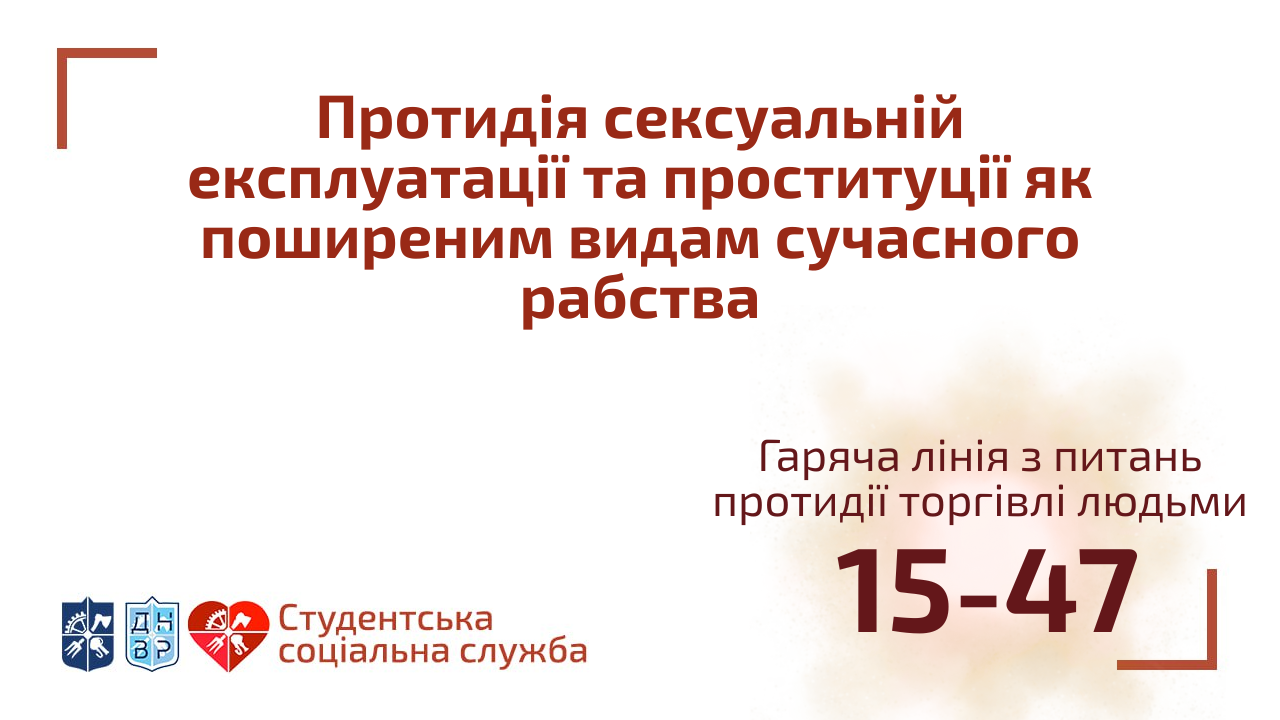On World Day Against Trafficking in Persons, we talk about combating sexual exploitation and prostitution as common forms of modern slavery.
Historical perspective and previous models
At the end of the 20th century, with the development of human rights, public attitudes toward sex and sexual violence changed: instead of condemning sex in principle, we condemn violence and talk about active consent, voluntariness, and the safety of participants. Thus, the old approach to prostitution has also changed, whereby the stigma (for “immorality” and the spread of disease) was placed on those involved in prostitution (mainly women and children).
As a partial solution, some countries have introduced full legalization, whereby the state acts as a pimp, collecting taxes and regulating radical manifestations of violence in the industry. However, the negative consequences outweighed the positive ones: the majority of the market remained underground, the police were unable to provide protection from clients and pimps, and the increase in demand led to a rise in human trafficking, international trafficking, and child sex slavery.
Under the slogan “Sex work is not sex and it is not work,” legalization is criticized by human rights initiatives and grassroots associations of people who have survived prostitution, as it is a forced choice even when formally voluntary, and coercion into unwanted sex cannot be made safe for health.
In 1999, Sweden introduced a new policy under the Women's Rights Act: a neo-abolitionist model for combating prostitution.
Neo-abolitionist model (Swedish, Nordic, equality model) combats demand as the main cause and introduces penalties (fines or imprisonment) for clients. Prostitution is considered paid rape, as every person has the right to control their own body, but not someone else's.
"The key belief of the UN is that all women involved in prostitution are victims. Regardless of whether they call themselves "sex workers“ whether or not they consider it work, we consider them victims. And those who purchase such ‘services’ are considered perpetrators violence against women», – Executive Director of UN Women Phumzile Mlambo-Ngcuka.
Under the Swedish model, criminal liability is borne by pimps, brothel owners, traffickers, and human traffickers.
At the same time, punishment is removed from women/men/transgender persons involved in prostitution. With state funding (obtained from fines imposed on clients), they can receive medical and psychological rehabilitation, legal protection, and, if they wish, take advantage of exit programs.
Educational activities are also planned in society regarding bodily integrity, sex education, and the concept of active consent.
Examples of implementation: Sweden, Norway, Iceland, Ireland, France, Canada, Israel.
In 2014, the European Parliament called on all EU member states to adopt the necessary laws to criminalize the buyer.
The neo-abolitionist model is not a silver bullet that will eradicate sexual exploitation with a single change in the law. Without political will and public pressure, law enforcement agencies may limit themselves to formally punishing pimps at the lowest levels of the scheme.
However, the Swedish model is currently the most effective in combating human trafficking and reducing violence within the industry.
Legislation in Ukraine today
Ukraine has committed itself to combating sexual exploitation by signing a number of international documents: the Convention on Combating Trafficking in Persons and Exploitation of Prostitution by Third Parties and the Protocol to Prevent, Suppress and Punish Trafficking in Persons, Especially Women and Children. However, legislation is still at an intermediate stage:
- Prostitution is decriminalized, but people involved in prostitution are subject to administrative liability.
- pimping and involvement in prostitution is criminalized, but buyers do not receive any punishment.
Why does the state's approach to prostitution affect everyone, not just the immediate victims?
Often, during public discussions, advocates of legalization try to downplay the importance of the issue, arguing that the choice of legislative approach affects only a very small group of citizens and that “decent society” should not be interested in this area at all. However, in reality, the consequences are not limited to the threat to victims already involved in the industry.
- The rise in human trafficking and the risk of women and children falling into slavery
The lack of punishment for those who purchase sex normalizes the idea that buying sex is acceptable. This encourages new clients, which requires an influx of new victims.
There are not enough women in difficult circumstances who have already fallen into prostitution, and to meet market demand, brothel organizers use a full range of means, from those legally permitted under legalization to those prohibited: economic pressure, psychological pressure (the lover boy scheme), fraud, coercion to use psychoactive substances, physical violence, threats to family members, sale of children into sex slavery, kidnapping, trafficking, etc.
The risk of becoming victims of human trafficking is increasing for everyone, but vulnerable groups are particularly at risk: children, people with disabilities, victims of armed conflict, transgender people, women who have experienced sexual violence or domestic violence, and mothers.
- Dangers for women and children outside prostitution
Prostitution is a component of gender-based violence and exacerbates inequality: according to various estimates, 80-90% of those exploited are women, while 90-99% of clients are men.
Society's tolerance of non-consensual sex, deepening gender inequality, and the objectification of women are linked to rising levels of domestic violence, rape, and violence against women and children.
Countries where sexual exploitation is not punishable attract “sex tourists,” who pose an additional danger. Where prostitution has been legalized in certain areas/cities, such areas are particularly dangerous for women and girls.
According to research, male clients are up to eight times more likely to use sexual and physical violence in relationships with their partners and other women, and the more often a man has sexually exploited women in prostitution, the higher the risk of domestic violence.
Buyers also tend to condone rape in general and spread myths from a culture of violence: “If a woman says no, she means yes,” “Most accusations against men are fabricated by women,” and so on.
- Other socioeconomic factors
Organizations that fight prostitution and related practices, like NordicModelNow in the UK, point out the extra burden this industry puts on the budget. The fight against organized crime requires greater expenditure, the burden on the healthcare system is increasing (treatment of the consequences of violence in prostitution and beyond), and social services for children are under strain.
In addition, some Israeli researchers consider prostitution harmful to clients as well, since young men gain a distorted experience that later prevents them from building romantic relationships or engaging in mutually enjoyable consensual sex.
What can be done to ensure personal safety and build a safer society?
- Follow safety rules when traveling, applying for jobs, and studying. Never sign contracts without reading them and do not give your documents to strangers.
- Not working as administrators or receptionists in brothels – this can be interpreted as pimping and a criminal offense.
- Stay in touch with friends when you go to a meeting/date with a stranger.
- Sign petitions and support initiatives for the faster introduction of the Swedish model in Ukraine.
- Adhere to a culture of consent and disseminate information about it.
- Debunk myths about human trafficking; share information about services that help victims of human trafficking.
In Ukraine, a hotline for combating human trafficking is available 24 hours a day, free of charge, at 15-47.
The telephone number 15-47 is for persons who have been victims of human trafficking (or consider themselves to be victims), or persons who have become aware of such cases.
On the hotline: professional information, psychological and legal advice or recommendations on further actions or possible assistance are provided.
Also on this site You can register your request and find detailed information on combating human trafficking, preventing and combating domestic violence, gender-based violence, and violence against children.


